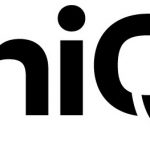Quantum News Briefs: December 13, 2023: Caltech and Broadcom Announce Quantum Research and Development Partnership; MIT researchers observe a hallmark quantum behavior in bouncing droplets; Which Quantum Stock is Better: IBM or IonQ; and MORE!

Quantum News Briefs: December 13, 2023:
Caltech and Broadcom Announce Quantum Research and Development Partnership
Caltech and Broadcom have announced a significant multi-year partnership to boost quantum science research, a collaboration supported by substantial funding from Broadcom. This partnership will establish the Broadcom Quantum Laboratory at Caltech, creating a shared space for experts in various quantum-related fields. The initiative will also include joint programming and research to expedite quantum computing, sensing, measurement, and engineering discoveries. Over the next five years, the two organizations plan to host an annual symposium to discuss mutual interests and potential development opportunities. Caltech President Thomas F. Rosenbaum emphasized the transformative potential of quantum discoveries, while Broadcom’s CEO Hock Tan highlighted the partnership as a commitment to innovation and connection. Caltech, renowned for its pioneering quantum science research since the 1980s, sees this collaboration as continuing its legacy in advancing technology that could impact diverse areas like energy storage, drug design, and information security.
MIT researchers observe a hallmark quantum behavior in bouncing droplets
MIT mathematicians have made strides in demystifying quantum mechanics by replicating a quantum bomb tester in a classical setting. Their study, recently published in Physical Review A, demonstrates a tabletop experiment where droplets exhibit behavior similar to quantum wave-particle duality. The experiment, inspired by the “quantum bomb tester” thought experiment, involves a droplet navigating a bath of silicon oil, mimicking the quantum behavior of a photon potentially detecting a bomb without direct interaction. This classical analogy, which matches the predicted quantum statistics, suggests underlying classical dynamics might explain some quantum phenomena. The research bridges the observable classical world and the enigmatic quantum realm, challenging long-held assumptions about the exclusivity of quantum behaviors. This breakthrough could shed light on the fundamental nature of quantum mechanics, historically considered beyond classical understanding.
In Other News: Yahoo Finance article: “IBM vs. IonQ: Which Quantum Computing Stock Is a Better Buy?”
In 2023, the quantum computing sector witnessed significant advancements, with IBM and IonQ emerging as key players, a Yahoo Finance article highlights. Quantum computers, using atomic particles for computations, have the potential to process data at an unprecedented scale, challenging current cybersecurity measures. IonQ, the first publicly traded company exclusively focused on quantum computing, has seen rapid revenue growth, with a projection of $21.2 million for 2023. Despite increasing revenues, IonQ is also experiencing growing net losses, which is common in the tech industry’s growth phase. IBM, a veteran in the field, integrates quantum computing with its main businesses of AI and cloud computing. Notably, IBM was the first to offer quantum computing via the cloud and has partnerships across various sectors, including healthcare research with Cleveland Clinic. IBM’s overall financial stability, including a 4.6% year-over-year sales increase and a dependable dividend yield, contrasts with IonQ’s more speculative nature but rapid growth potential. Investors must choose between IBM’s long-term dependability and IonQ’s focused growth in the emerging field of quantum computing, considering their investment strategies and risk tolerance.
In Other News: Forbes article: “IBM Simplifies SW Development for Quantum Computing with New Tools
A recent Forbes article highlights that IBM is leading the way in quantum computing with the release of Qiskit 1.0, a significant upgrade to its open-source software development kit. The new version introduces Qiskit Patterns, designed to simplify the transition from classical to quantum computing for scientists. These Patterns, along with advancements in quantum execution modes and serverless computing, demonstrate IBM’s commitment to making quantum computing more practical and accessible for mainstream scientific research. The Qiskit Patterns framework, which includes a four-step process to optimize quantum algorithms for specific hardware, is a key feature of this update. Additionally, IBM’s introduction of batch mode in Quantum Execution Modes has improved efficiency, allowing multiple quantum jobs to be processed simultaneously or sequentially. The development of Serverless Quantum Computing further simplifies the user experience by abstracting the complexities of quantum hardware. These initiatives by IBM aim to broaden the scope of quantum computing applications and make it a more practical tool for scientific advancement.
Kenna Hughes-Castleberry is the Managing Editor at Inside Quantum Technology and the Science Communicator at JILA (a partnership between the University of Colorado Boulder and NIST). Her writing beats include deep tech, quantum computing, and AI. Her work has been featured in Scientific American, Discover Magazine, New Scientist, Ars Technica, and more.



















